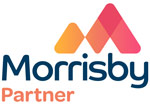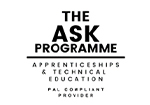It’s World Engineering Day on March 4th and National Careers Week from March 4 - 9th and in this month’s blog we explore the dynamic and impactful world of engineering careers and the skills and qualifications to get your career started.
What is Engineering?
Engineering uses the principles of science and technology and also involves being innovative, creative and practical in the development of the infrastructure and technological advancements that shape our world.
Engineering roles can involve anything from researching and designing ways to remove plastics from the ocean, building and maintaining software systems, developing or maintaining advanced communication systems or helping steam turbines to run more effectively.
The engineering sector is hugely diverse and whether it’s your dream to work for a larger international firm such as Unilever, Airbus and Siemens or you’d prefer to make a difference in a smaller company, there are a wide variety of opportunities to explore.
To find out more about the different fields of engineering go to Engineering Careers - DiscoverE.
What do engineers earn?
Engineering salaries can vary depending on the sector, level of experience and the location of the job. As an aerospace engineer, average salaries are £46,100, a chemical engineer can earn around £41,200 while a mechanical engineer job can provide £40,100. However, with more experience, salaries could reach over £80,000 a year.
Which subjects are useful?
You will usually need Maths and often Physics A levels or equivalents if you are considering a career as a qualified Engineer. Design Technology and Further Maths can be useful too for some degree courses. For Chemical Engineering, the requirement is usually Maths and Chemistry and again Physics is useful. For Software Engineering, Maths and Computer Science are typically needed. For students without the usual entry subjects, degree courses with a foundation year or apprenticeships can provide a route in.
What degree courses are available?
There are specialised degree courses for the various fields in engineering including Aeronautical, Aerospace, Motor Sport, Chemical, Civil, Electronic and Electrical and Mechanical. Studying a General Engineering degree will cover the fundamentals of Engineering before providing the opportunity to specialise in a particular area.
Many UK universities offer BEng (3 year) or MEng (4 year) courses. Either could be extended by a further year by including a placement with an employer or to study abroad. It is also possible to do joint or combined courses. Entry requirements will vary, but for more competitive courses, A*A*A-AAB may be required. Search for courses at UCAS.
What types of Engineers are there?
Mechanical Engineers plan and develop engines and powered machines including electric generators, internal combustion engines, steam and gas turbines, air conditioning systems, refrigeration as well as lifts and escalators.
You do not have to have a degree to start training and work in this area of engineering and many colleges offer vocational engineering diplomas at L2 and L3.
Skills for roles in this area of engineering include analytical thinking to problem-solve effectively as well as being thorough and paying attention to detail, whilst being able to use a computer and the main software packages confidently.
At degree level some of the modules you would study include solid mechanics, thermo-fluids, materials and manufacture, dynamics and control.
Typical employers are those in the automotive, manufacturing and aerospace sectors and includes railway engineering and there are a number of apprenticeships in these industries.
Chemical Engineers develop new industrial processes to transform raw materials into useful items such as fabrics for sportswear, food products, fuels, materials and healthcare products in a sustainable, cost-efficient and safe way.
You will need to have strengths in experimentation, calculation, analysis and problem-solving abilities.
In a Chemical Engineering degree course, modules could include thermodynamics, fluid mechanics, industrial chemistry, environmental management, cell biology and petroleum engineering.
If you would like to combine study whilst working and earning a salary an apprenticeship in chemical engineering provides an alternative route.
For more information about job roles seeThe Chemical Engineer Job Board and What can I do with a chemical engineering degree?
Electrical and Electronics Engineers design and develop new electrical systems, test equipment and oversee manufacturing processes. Job roles can involve telecommunications, satellite communications, computers and mobile and household appliances.
At degree level some of the modules that you may study might include: analogue electronics, analysis of circuits, digital electronics, electrical and electronics fundamentals, sensing and signals, computers and control.
Apprenticeships are available at degree level for Electronic Engineering and for Electrical Engineering can start at Level 3. Some of the companies offering these apprenticeships include: Airbus, BAE Systems, Cadent, EDF, GSK, MBDA and Stagecoach to name a few.
Civil Engineers focus on infrastructure, such as roads, water supplies, bridges and buildings. Find out more at: Civilengineering
For a career in Civil Engineering, you’ll need good design skills and be able to tackle complex problems as well as be thorough and be computer literate.
Typical modules for degree courses in this subject include: computational methods, fluid mechanics, geotechnical analysis, site surveying and structures, materials and dynamics.
For those looking for an apprenticeship. ICE (Institue of Civil Engineers) provides apprentices with support and guidance along their 4/5 year degree apprenticeship programme.
Software Engineers design, develop, test and maintain the software technologies including apps, websites, operating systems, mobile devices and computer software.
You will usually need good analytical skills and problem-solving abilities as well as knowledge of programming languages (Java, Python and C++, SQL).
As part of a software engineering degree course, modules could include cloud computing, programming languages, ethical hacking, application and web development, algorithms and operating systems.
You can find software engineering apprenticeships with companies such as BT, Rolls-Royce and Amazon and for more apprenticeships in the digital sector read more here.
What work experience is available?
Work experience placements or summer residential courses can provide valuable experience and will help you develop some relevant skills and demonstrate to potential employers that you have a strong motivation to work in the sector.
UK Electronics Skills Foundation offer a five-day Headstart residential summer school for 16-17 year old school students who are studying subjects in science, technology, engineering and maths. They also run a scholarship scheme for students looking to study electronics or electrical engineering.
The Engineering Development Trust (EDT) run virtual courses which you could sign up for.
The Smallpeice Trust run online and in-person courses for students aged 12 to 17 including robotics, cyber security, aerospace, astrophysics and computing. Courses are subsidised or free of charge. Find out more at Smallpeice Trust Courses and Events.
You can search for other work experience opportunities on Student Ladder and on Springpod.

Final tips
As part of World Engineering Day and National Careers Week, take the time to discover the steps you need to take to getting your career started and the skills you will need.
You could have the chance to contribute to a sustainable future, tackling global challenges and make a difference to how we live our lives. Check out the following to kick start your career in engineering:
And if you want to speak to one of our advisers, please feel free to reach out to us at enquiries@futuresmartcareers.co.uk
Images by microvector freepik



 0330 311 9509
0330 311 9509 




 0330 311 9509
0330 311 9509









